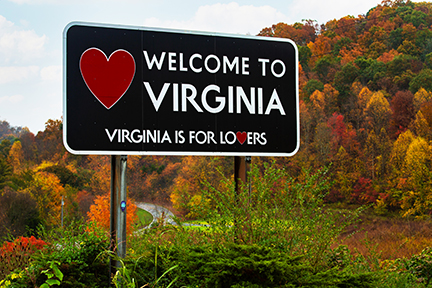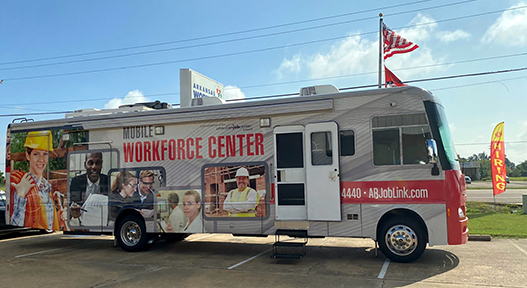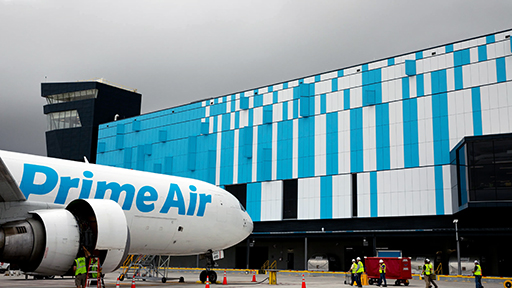
CNBC recently released its list of “America’s Top States for Business 2024.” In the study, CNBC used data from each state’s primary economic development arm, the Annual Comprehensive Financial Report and numerous other sources to determine the rankings. States are scored on 128 metrics across 10 broad categories of competitiveness. Each category is weighed based on how frequently states use them as a selling point in economic development marketing materials. The highest a state can score is 2,500.
CNBC’s Top Five States for Business 2024 (all Southern):
Virginia
North Carolina
Texas
Georgia
Florida
Source: CNBC
New York residents spend the most on taxes of any state in the country; a whopping 12 percent of their annual income goes to state and local government income taxes. Here are the top ten states with the highest income tax:
New York 12 percent
Hawaii 11.8 percent
Vermont 11.1 percent
Maine 10.7 percent
California 10.4 percent
Connecticut 10.1 percent
Minnesota 10 percent
Illinois 9.7 percent
New Jersey 9.5 percent
Rhode Island and Utah 9.4 percent
Source: WalletHub
Despite struggles in the global aerospace industry, European-based Airbus celebrated in the summer at its complex at the Brookley Aeroplex in Mobile, Ala. The 500th airliner exited the line at the Airbus plant in Mobile.
Norfolk Southern is investing more than $200 million to grow capacity on a key rail line in Alabama, the 3B Corridor, which connects markets in northern and central Alabama to the Port of Mobile and destinations worldwide. The 3B Corridor is strategically aligned with the Port of Mobile, which contributes $85 billion in annual economic value to Alabama. The corridor represents an important segment of Norfolk Southern’s annual traffic, serving critical industries like agriculture, automotive, chemicals, forestry and steel. The investment project positions the line to accommodate expected growth in several sectors as the Southeast progresses as an economic powerhouse for the U.S. economy.
Alabama’s Black Belt has all the ingredients to become a premier ecotourism destination, according to a report produced by a renowned ecotourism expert who conducted a detailed assessment of tourism development potential in the region. The report, authored by Costas Christ and Associates, along with Beyond Green Travel and the University of Alabama Center for Economic Development, recommends that tourism planning and development in the Black Belt focus on the three pillars of nature, culture and community. It also urges communities throughout the Black Belt to collaborate and work together to foster economic development throughout the region’s 23-county footprint.
“By emphasizing the conservation of nature and protection of cultural and historic sites, along with local community engagement, the Black Belt can become a leading ecotourism destination,” said Christ, who is a former editor and senior director for sustainability for National Geographic and a top travel expert. “The Black Belt is a diamond in the rough. It just needs some polishing,” Christ said in an interview with Alabama News Center.
Arkansas steel giants like Blytheville-based Nucor-Yamato, as well as Big River Steel and Hybar of Osceola, are transforming Mississippi County into a hub of recycled steel, renewable energy and innovative technology. Industry experts say green steel is the future, and Mississippi County steel plants are leading the way. Steel manufacturing produces more carbon dioxide than any other heavy industry, responsible for about 8 percent of total global emissions, according to the World Economic Forum. With eyes on manufacturers to reach net-zero targets and meet ambitious climate goals, green steel is the answer many companies are seeking.
 Arkansas unemployment rate falls to near 3 percent while national rate rises to 4.3 percent
Arkansas unemployment rate falls to near 3 percent while national rate rises to 4.3 percentThe unemployment rate in Arkansas fell one-tenth of a percentage point to 3.3 percent in July, according to the Arkansas Division of Workforce Services. Here are the lowest seven state unemployment rates in the South in the mid-summer of 2024:
Mississippi 2.7 percent
Virginia 2.7 percent
Alabama 2.8 percent
Tennessee 3.0 percent
Florida 3.3 percent
Arkansas 3.3 percent
Georgia 3.4 percent
Atlanta City Council Members Jason Dozier and Matt Westmoreland introduced two pieces of legislation in the summer that would ban data centers from being built within the BeltLine Overlay District within a half-mile of transit stations in Atlanta. According to the Atlanta Business Chronicle, every council member is backing the legislation, which would not affect existing data centers nor those already approved for construction. “We want to make sure you have spaces that will be utilized by people rather than equipment and robots,”
Dozier said.
Atlanta is the hottest data center market in the U.S. right now, growing by 211 percent in projects under construction between 2022 to 2023, according to a CBRE report. Members of the City Council say that data centers should not be built where there could be more appealing uses of the land, such as greenspaces and affordable housing. Atlanta is a huge player in data centers, along with Dallas-Fort Worth and Northern Virginia, two other markets in the South that are recruiting the pricey projects.
In the summer quarter, Qcells received support from the federal government for its massive industrial project in Northwest Georgia. The U.S. Department of Energy announced it will extend a loan guarantee of up to $1.45 billion to Qcells, a South Korean-based manufacturer of solar energy technology, to support the building out of its solar panel manufacturing facility in Cartersville. The facility will be the United States’ first fully integrated silicon-based solar manufacturing plant in more than ten years, per the Department of Energy. It will also be the largest factory producing ingots and wafers — key parts of the panel-manufacturing process — ever to be built in the U.S.
 KENTUCKY
KENTUCKYAmazon.com Inc. is a massive company — currently ranking No. 5 in market cap in the U.S. at over $1.7 trillion and annual revenue of more than $600 billion. And Amazon has had a big impact on Kentucky. Here are some highlights:
$43 billion — invested in Kentucky since 2010, including infrastructure and compensation to employees
$39 billion — added into Kentucky’s Gross Domestic Product
22,000 — full- and part-time jobs created in Kentucky (as of January)
50,300 — indirect jobs supported on top of direct hires in the state (based on Input-Output methodology developed by the U.S. Bureau of Economic Analysis)
Amazon’s main investments in Kentucky include: 11 fulfillment and sortation centers; five delivery stations; one Air Hub; two Whole Foods Market locations; four solar farms; and one on-site solar location, according to Louisville Business First.
Gov. Andy Beshear announced that the state is continuing to support job growth and economic development by renewing its contract with six Innovation Hubs located throughout the state that help support new businesses and entrepreneurs. Each hub serves as an entrepreneurial support system throughout its region, providing mentorship and startup coaching, connections to public and private funding, events and networking opportunities across the state and many other resources to accelerate growth.
“We are securing Kentucky’s place at the forefront of innovation by continuing to invest in new businesses and entrepreneurs,” said Gov. Beshear. “The Innovation Hubs provide incredible opportunities for startup companies to succeed and create quality jobs for Kentucky families.”
The Innovation Hubs are a partnership between the Kentucky Cabinet for Economic Development Office of Entrepreneurship & Innovation (KY Innovation) and the Kentucky Science & Technology Corporation (KSTC).
Surrounded by legislators, economic development leaders and business stakeholders from around the state, Governor Jeff Landry signed legislation that fulfills his commitment to overhaul the state’s approach to economic development and revitalize business investment and job creation. SB 494, known as the “Positioning Louisiana to Win” bill, modernizes the organizational structure of Louisiana Economic Development so it can better attract new business and more effectively support the businesses already invested in the state. The signing coincided with LED Secretary Susan B. Bourgeois’ announcement of her senior leadership team, which adds extensive private sector, economic development and change management experience at a pivotal moment in the agency’s history.
In the summer quarter, North Carolina Gov. Roy Cooper said that the Tar Heel State is the center of clean energy in the U.S. From the Triad Business Journal, “If you talk to any CEO of any car company in the world, they will tell you that they are stumbling all over themselves to get into the market first for affordable vehicles,” says Governor Roy Cooper, who calls North Carolina “the epicenter of clean energy.”
Toyota is building its $13.9 billion battery manufacturing plant in Randolph County, N.C. (near Greensboro). Toyota’s project will create more than 5,000 jobs upon completion in 2025. The story also contained a quote from the president of Toyota Battery Manufacturing: “The thing that we were really, really interested in, and we felt like we can capitalize on, was the human capital in the people, the talent pool that they had here, mainly driven a lot by their school systems, their college systems,” said Sean Suggs, who is the North Carolina president of Toyota Battery Manufacturing.
Charlotte’s overall office vacancy hit an all-time high in the second quarter of 2024. Cushman & Wakefield’s recent report showed that Charlotte’s vacancy rate reached nearly 25 percent in the second quarter. The real estate firm’s report showed that vacancy rates in Charlotte are about the same as during the Great Recession in 2008.
The completion of the factory for building Boom Supersonic’s first supersonic commercial jetliner factory marks just the start of a likely expansion that will double and perhaps even triple its footprint at Piedmont Triad International Airport, its founder and chief executive said at a ceremony marking the occasion in the summer. CEO Blake Scholl said the company expects to build 33 of the jets a year, but already plans to expand with another building housing a second manufacturing line to assemble the jetliners. Boom is already working on a second and third version of the aircraft, larger than the first. The additional facilities would locate on the 62-acre campus on the northwestern edge of PTI’s vast grounds. Scholl likened the 180,000-square-foot building that’s now completed to a Lego block that the company can repeat as needed.
Nucor is moving toward a production start at its new $350 million steel mill in Davidson County, N.C. The Charlotte-based steel-making giant confirmed that the mill is on track to open in the first quarter of 2025. Nucor also has hired 139 of the expected 200 new employees that will work at the mill, a company spokesperson told the Charlotte Business Journal. Nucor CEO Leon Topalian confirmed the mill’s timeline on the company’s second-quarter earnings call last this summer.
 SOUTH CAROLINA
SOUTH CAROLINAThe 2023 Allied U.S. Migration Report presents a detailed analysis of the current trends in interstate moves across the United States, highlighting significant patterns and underlying economic factors. According to Allied, South Carolina topped the list of states for relocation in 2023. According to the Allied U.S. Migration Report, the most attractive state for people to move to in 2023 was South Carolina (65 percent). And Charleston was the top city (70 percent). The percentage represents the number of people moving into the state as a share of the state’s total number of movers.
The top five inbound states included Arizona, Tennessee, North Carolina and Florida in the Allied ranking. Other data from the report included:
Top Outbound States
Illinois
California
Pennsylvania
Michigan
Washington
Top Inbound Cities
Charleston, S.C.
Tucson, Ariz.
Charlotte, N.C.
Nashville, Tenn.
Phoenix, Ariz.
Top Outbound Cities
San Diego, Calif.
Chicago, Ill.
Seattle, Wash.
Detroit, Mich.
Los Angeles, Calif.
Source: Allied US Migration Report
Software giant Oracle Corp. announced in the spring quarter it will build its world headquarters on a 70-acre piece of property on the city’s downtown riverfront. That was news to Austin officials, who captured the company’s U.S. headquarters in 2020 when Oracle moved from Silicon Valley. For now, it looks like the company will operate both campuses. The company says it is building a “park” in Nashville with “buildings in the park.” The $1.35 billion deal is expected to create 8,500 jobs. Oracle will add 30 percent of Nashville’s total office space with the big buffalo deal.
An unknown (for now) semiconductor manufacturer is eying Bryan, Texas, for a new greenfield plant that could house thousands of workers. We also have information on four more chip plants scoping out the South as the industry continues to expand in the U.S., all the while ditching Asia to a degree. The plant, which rumor has it could generate a long-term investment of $100 billion and 2,000 jobs, would be built on a site owned by
Texas A&M University.
The financial firm TIAA is expanding its presence in North Texas. The company recently confirmed that it will close its downtown Denver office in 2026, as it transitions most of those roles to its new Frisco corporate office, which is located in The Star development near the Dallas Cowboys training facility. The Denver Business Journal reported that TIAA’s exit out of Denver could impact around 1,000 jobs, with most of those being part of the relocation to Frisco. TIAA’s new office in Frisco is a 15-story building that cost around $110 million and will total around 500,000 square feet, according to reports by the Dallas Business Journal.
Chevron, the second largest U.S. oil company, is moving its headquarters to Houston from California, the nation’s most populous state that continues to push aggressively to address climate change. It should be noted that the State of California sued Chevron and other large oil companies last year, claiming they misled the public over the risks of fossil fuels. While the Houston MSA is no stranger to oil and gas (it is known as the energy capital of the world) the past few years have marked a shift in favor of Houston when it comes to where Fortune 500 companies want to call home.
When Chevron’s relocation becomes effective January 1, 2025, and after corporate functions relocate over the next five years, the company will become the 24th Fortune 500 company in the Houston area, which ranks third in the nation behind the New York and Chicago metros. Chevron will also become the fourth Fortune 500 company to have relocated to Houston in the past five years: Spring-based ExxonMobil moved its headquarters there officially last summer. NRG Energy made Houston its sole headquarters in 2021, and Spring-based Hewlett Packard Enterprise Co. moved there from California in 2020. With Chevron’s move, the country’s top three oil and gas supermajors will be headquartered in the Bayou City area, according to the Houston Business Journal
More than 1 million square feet of warehouse and distribution space is planned in Hutto, Texas, not far from Samsung Electronic’s sprawling chip-making plant being built in nearby Taylor. The site of the project is about 10 miles west of Samsung’s growing campus and about 20 miles north of Tesla’s massive gigafactory in eastern Travis County in Texas.
Officials in Fairfax County, Va., are monitoring the number of data centers it seeks to recruit. Data centers continue to expand throughout Northern Virginia and the state plans to adopt policies that will monitor and therefore avoid problems like noise, power lines and electricity and water used for each project. Loudoun County is one of the leaders in Northern Virginia with regard to massive data center projects. Fairfax is looking at “edge” data centers that make connectivity even faster in dense populations.

Located in the heart of South Carolina, the Midlands region boasts the right people, places and partners for sustained economic growth and prosperity. The Columbia Metropolitan Airport (CAE) is an essential partner in the region’s success.
CAE is more than a travel hub; it’s a cornerstone of opportunity and regional development. As a committed community partner, CAE is deeply invested in enhancing the local economy and supporting businesses. From move-in ready industrial sites to land development and leasing options surrounding the airport, CAE’s economic impact extends far beyond its footprint.
Strategic Collaborations for Community Development
A key example of CAE’s strategic collaboration with the business community is 803 Industrial Park. Situated at the end of the CAE runway and adjacent to vital rail lines and three major interstates, this multimodal hub offers unparalleled connectivity. With close proximity to UPS regional air and ground hubs and FedEx Freight, the park is powered by CAE and brought to life through a collaboration between Magnus Development Partners, Mashburn Construction and Colliers. It boasts nearly 1 million square feet of strategically located, versatile space designed to meet the needs of a diverse range of tenants, making it an ideal location for businesses looking to expand or relocate.
Projects such as the Airport Expressway Extension, alongside the new traffic signal at the CAE Enterprise Park entrance, exemplify the airport’s commitment to infrastructure improvements to support business growth. These enhancements, made possible through partnerships with Lexington County and the South Carolina Department of Transportation (SCDOT), provide a safer and more efficient entry point, significantly raising the value of available parcels for sale or lease. Businesses can thrive in an environment where logistics are seamless and accessibility is a priority.
Boosting Regional Economic Potential
CAE is partnering with the South Carolina Department of Commerce and Lexington County to create multiple Certified Sites for aeronautical and non-aeronautical revenue generation. This initiative fosters regional economic development, positioning CAE
as a critical economic driver and making the Midlands an even more enticing location for businesses.
Foreign Trade Zone (FTZ) 127 at CAE provides businesses with a strategic advantage by allowing them to defer customs duties, reduce operating costs, and enhance supply chain efficiency, all within the Midlands. With oversight from CAE, FTZ 127 covers a centrally located region and offers a streamlined process for businesses to obtain FTZ designation, spurring job creation and investment. Additionally, companies engaged in production or manufacturing within the zone can benefit from deferred or reduced taxes, further amplifying their competitive edge.
CAE has launched multiple taxiway improvement projects, engaging local vendors and suppliers to secure federal grant money and infuse funds into the community. By using a phased approach, CAE minimizes disruption to commercial operations, ensuring a smooth experience for passengers while meeting FAA standards. These projects, funded by federal grants, airport investments and passenger facility charges, significantly boost the local economy by reinvesting millions back into the Midlands region each year.
Record-Breaking Passenger Growth and Enhanced Experience
Reflecting South Carolina’s population growth, CAE has seen a remarkable increase in passenger traffic. In 2023, the airport welcomed 1,234,487 passengers, marking a 16 percent rise over 2022’s passenger totals and nearing its highest passenger numbers in over a decade. Expanded nonstop flight routes, such as American Airlines’ seasonal service from CAE to Miami International Airport, meet this growing demand, advancing the region’s connectivity and appeal.
To enhance convenience for travelers, CAE has added new functionality to its website, allowing passengers to book flights directly from FlyCAE.com. Additionally, a multi-year airport master plan outlines growth and development for the next 20 years, incorporating community input to ensure regional needs are met.
Spurs Up, Wheels Up
As the Official Airport of the University of South Carolina Gamecocks®, CAE proudly supports athletics fans and alumni with seamless travel in and out of Columbia, just a short 20-minute drive from campus. This connection to the state’s flagship university — the largest in South Carolina —
underscores the airport’s role in fostering community and economic ties.
Smart Sustainability
CAE’s commitment to sustainability also sets it apart as a forward-thinking and responsible partner. By installing solar panels to provide additional covered parking while providing electricity to the terminal and new EV charging stations, the airport will support clean energy efforts without straining the local grid. Area businesses can be confident that they are part of a community that values and implements sustainable practices.
Join Us on the Journey
At Columbia Metropolitan Airport, the mission goes beyond facilitating travel; it is about propelling economic growth and community development. Businesses are
invited to join CAE on this journey to new heights, ensuring a prosperous future for South Carolina. Discover more about the opportunities that await at
FlyCAE.com.
To learn more about the Midlands region, and why it is truly the heart of South Carolina, check out the Central SC Alliance at CentralSC.org. Central South Carolina is where businesses thrive, and the future takes flight.